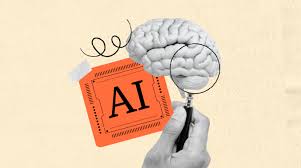Navigating the Future of Health: Challenges, Innovations, and the Path to Well-being

In an increasingly complex world, the concept of health is undergoing a profound transformation.
It’s no longer just about curing illness, but about fostering holistic well-being, preventative care, and equitable access for all.
The narrative provides a compelling look at how individuals, communities, and technological advancements are coming together to redefine health.
Modern Health Challenges and the New Focus
Beyond acute illnesses, today's individuals and communities are confronting significant, systemic health challenges.
SOURCE: Google
A primary concern is the global rise of chronic, lifestyle-related diseases such as type 2 diabetes, heart disease, and hypertension.
The World Health Organization (WHO) reports that these conditions are now the leading cause of death and disability worldwide, driven by factors like sedentary lifestyles and poor nutrition.
The burden of these diseases strains healthcare systems and reduces economic productivity on a massive scale.
Another critical challenge is the escalating mental health crisis. According to the WHO, an estimated one in eight people globally live with a mental disorder, and this number has been exacerbated by recent global events.
The lack of access to mental health services, the stigma surrounding it, and a shortage of trained professionals make this a particularly difficult hurdle to overcome.
Furthermore, environmental factors, including air pollution and climate change, are increasingly recognized as major public health threats, contributing to respiratory illnesses, allergies, and heat-related conditions.
These multifaceted challenges highlight a need to shift our focus beyond traditional medicine.
Technology's Role in a Health Revolution
Technology is revolutionizing personal health management and access to care.
Artificial intelligence (AI) is now a powerful tool for diagnostics, with algorithms capable of analyzing medical images to detect diseases like cancer with high accuracy, often faster than human doctors.
SOURCE:Google
AI-powered tools also analyze patient data to predict health risks and personalize treatment plans.
The widespread adoption of wearable health technology, from smartwatches to fitness trackers, empowers individuals by providing real-time data on their heart rate, sleep patterns, and physical activity.
These devices are shifting the emphasis from reactive to proactive health monitoring.
Telemedicine has also fundamentally changed access to care, particularly for individuals in remote or underserved areas.
Virtual consultations and remote monitoring platforms allow patients to connect with specialists without the need for travel, reducing costs and increasing convenience.
The ethical implications of these technologies, however, are a significant concern.
Questions around data privacy, algorithmic bias, and equitable access to these tools must be addressed to ensure that technology serves all of humanity, not just those with the means to afford it.
The Shift to Proactive Well-being
The healthcare industry is seeing a growing emphasis on preventative care and personalized medicine, which is shifting our approach from reactive treatment to proactive well-being.
SOURCE: Google
This model focuses on preventing illness before it starts, rather than just treating symptoms.
For example, personalized medicine leverages genetic and lifestyle data to create custom wellness plans, including tailored dietary recommendations and exercise regimens designed to mitigate a person's specific risk factors.
This shift is driven by the understanding that a holistic approach to health is more effective and sustainable in the long term.
Public health initiatives now promote healthy eating and exercise, while healthcare providers are increasingly prescribing lifestyle changes alongside traditional treatments.
This focus on early intervention and health promotion aims to reduce the overall burden on health systems and improve quality of life. The goal is to move beyond simply living longer to living better.
Addressing Determinants of Health
Socio-economic factors, lifestyle choices, and environmental changes are increasingly understood as powerful determinants of health outcomes.
Socio-economic status dictates access to nutritious food, safe housing, and quality education, all of which directly impact a person’s health.
Low-income communities, for instance, are often located in "food deserts" and have limited access to green spaces, leading to higher rates of chronic illness.
SOURCE: Google
Lifestyle choices, such as smoking and poor diet, are major drivers of non-communicable diseases.
Efforts to address these determinants are now at the forefront of public health policy.
Governments and non-profit organizations are working to improve access to fresh, healthy food in underserved communities, promote active lifestyles, and invest in sustainable urban planning.
Additionally, environmental policy is being integrated with health policy to reduce pollution and create healthier living spaces.
These efforts aim to address the root causes of health disparities and create a foundation for a healthier population.
Innovative Models and Collaborative Initiatives
Innovative models and collaborative initiatives are essential for strengthening health systems and ensuring more equitable access to quality care.
Community-based care models, for example, are bringing health services directly to individuals, focusing on local needs and cultural contexts. In some regions, mobile health clinics and pop-up wellness centers are providing essential care in remote or rural areas.
Public-private partnerships are also proving effective, with technology companies collaborating with healthcare providers to develop and scale innovative digital health solutions.
In Africa, for example, mobile technology is being leveraged to connect patients with doctors and provide health information, bypassing traditional infrastructure challenges.
These models show a move towards decentralized, patient-centric care that is more responsive and accessible.
The global health community is also working on initiatives to share knowledge and resources, ensuring that successful health models can be adapted and implemented worldwide.
Empowerment and the Active Individual
The future of health is not just about systems and technology; it's also about empowering individuals and communities to take a more active role in their health journey.
With the proliferation of new tools and knowledge, people can now be active participants in managing their own well-being.
This includes using wearable tech to track progress, leveraging health apps to monitor chronic conditions, and using online resources to educate themselves on nutrition and exercise.
Community health initiatives, from local fitness clubs to mental health support groups, also play a vital role in fostering collective well-being.
By fostering health literacy and providing accessible tools, health systems can shift the dynamic from a passive one where patients receive care, to an active one where they are partners in their own health and wellness.
This sense of ownership and agency is a cornerstone of the new paradigm, making a healthier future not just a possibility, but an attainable reality for all.
You may also like...
From Etisalat to 9mobile to T2: The Rise, Retreat, and Reinvention of Nigeria’s Fourth Operator

From a meteoric rise to a challenging retreat, Etisalat Nigeria’s evolution into T2 tells a story of resilience, wins, a...
Boxing Blockbuster: Jake Paul and Gervonta Davis Set for November Showdown

In a surprising announcement, Jake Paul is set to face WBA lightweight champion Gervonta "Tank" Davis in an exhibition b...
Carabao Cup Shocker: Grimsby Stuns Man Utd in Penalty Thriller

Manchester United suffered a shocking Carabao Cup exit after losing 12-11 on penalties to League Two side Grimsby Town. ...
Venice Stunner: Paolo Sorrentino's 'La Grazia' Captivates Critics with Record-Breaking Ovation!

Paolo Sorrentino's new film “La Grazia” opened the Venice Film Festival to critical acclaim, presenting a nuanced portra...
The Hunt for 007: Frontrunners Out, Legends Back, New Details Emerge in Bond Saga!

The search for the next James Bond intensifies as actors like Taron Egerton and Glen Powell rule themselves out, while M...
Reading and Leeds Festival Plunged Into Chaos by Secret Set Leaks and Star's Last-Minute Snub

Reading and Leeds Festival 2025 is buzzing with fan speculation about secret sets from The Foo Fighters and Chase & Stat...
Naira Marley Breaks Silence on Mohbad's Death Amid Mounting Controversy

Musician Naira Marley has publicly addressed the controversial death of his former signee, Mohbad, sharing his side of t...
Pete Davidson's Paternal Bliss: Comedian's Dream of Fatherhood Comes True with Elsie Hewitt

Comedian Pete Davidson and model Elsie Hewitt are expecting their first child, announced via Instagram by Hewitt. Davids...




